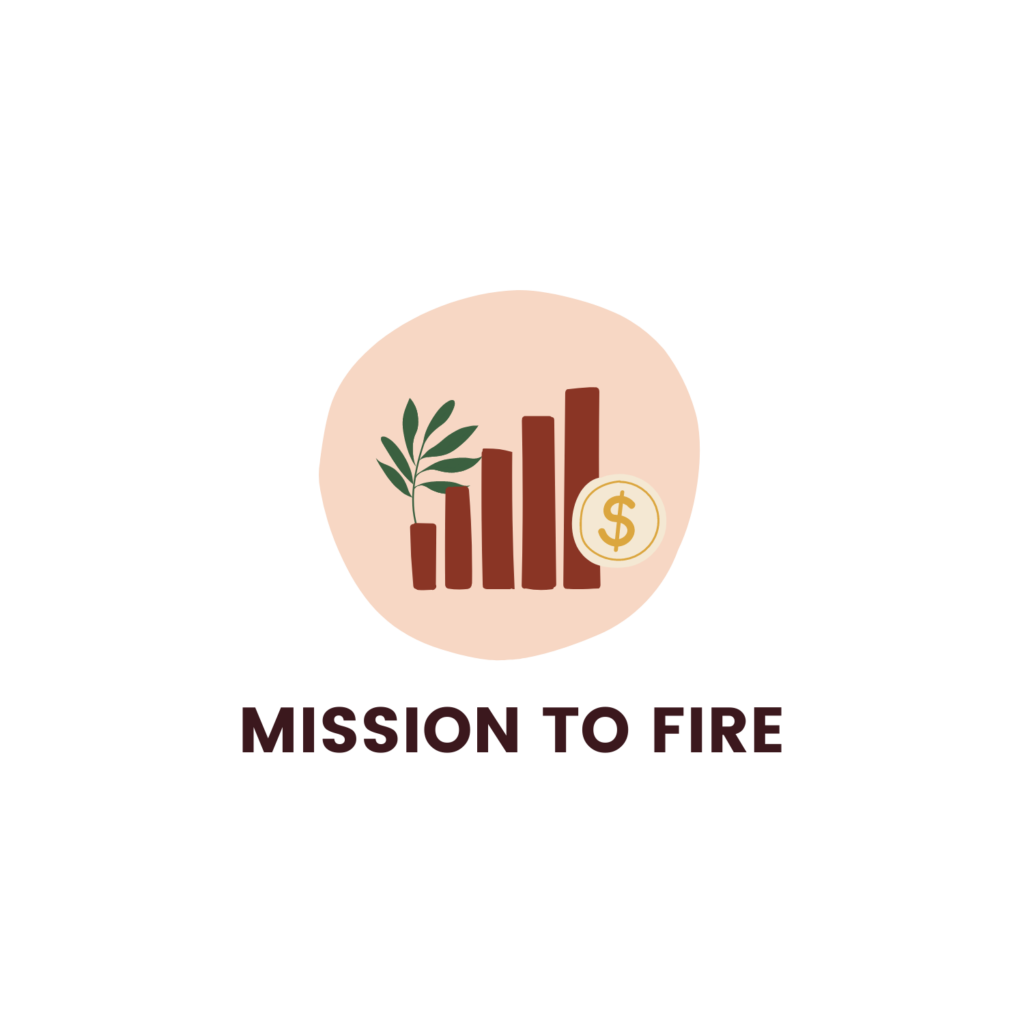Want to retire early? Your housing choice can make or break your FIRE goals.
Here’s what you need to know about renting vs. buying on your path to financial independence:
Quick Answer: Neither option is universally better – it depends on your FIRE strategy. Renting offers flexibility and frees up capital for investments, while buying builds equity and can generate rental income.
Here’s how each option impacts your FIRE journey:
| Factor | Renting | Buying |
|---|---|---|
| Monthly Costs | Rent + insurance | Mortgage + taxes + maintenance |
| Initial Investment | Low (security deposit) | High (20%+ down payment) |
| Wealth Building | Investment flexibility | Property appreciation + equity |
| Risk Level | Market rent changes | Property market volatility |
| FIRE Timeline | Can be faster | Usually longer |
Key Takeaways:
- Keep housing costs under 30% of take-home pay
- Renting = more investment flexibility + easier relocation
- Buying = forced savings + potential rental income
- House hacking can speed up FIRE by offsetting costs
- Consider REITs for real estate exposure without buying
The best choice comes down to your personal FIRE timeline, risk tolerance, and local market conditions. Many successful FIRE followers mix strategies – like house hacking or combining REITs with renting.
Related video from YouTube
Money Matters
Let’s break down the financial implications of renting versus buying on your path to FIRE. Knowing these costs will help you make an informed decision that fits your early retirement goals.
Upfront and Monthly Costs
Renting and buying have very different upfront costs. Renting usually requires a security deposit and first month’s rent. Buying, on the other hand, demands a significant down payment and closing costs. But what about the long-term financial picture?
| Expense Type | Renting | Buying |
|---|---|---|
| Initial Costs | Security deposit, First month’s rent | Down payment (20%+), Closing costs |
| Monthly Fixed | Rent payment | Mortgage payment |
| Additional Costs | Renter’s insurance | Property tax, Home insurance, Maintenance |
| Long-term Trend | Typically increases yearly | Fixed mortgage payments with potential equity gains |
Building Wealth Through Property
For those chasing FIRE, owning property can be a powerful way to build wealth. With US home prices rising by 5.3% each year, real estate can provide appreciation and equity growth.
"Real estate offers a compelling alternative investment avenue… considering the innate cash flow potential that real estate can provide, investors can adopt a strategy where they use passive income as the ‘withdrawal rate’, rather than selling off the portfolio." – Travis Watts, Director of Investor Development, Ashcroft Capital
When done right, real estate investments can generate annual returns of 10% or more, especially with mortgage financing. Homeowners also get tax benefits like mortgage interest deductions and depreciation, which can help them reach financial independence faster.
Money for Other Investments
Renting can free up a lot of capital for other investments. Instead of tying up money in a down payment, renters can invest in a diversified portfolio of stocks and bonds. This flexibility aligns with the 4% rule – a key part of FIRE planning – which suggests maintaining a retirement portfolio that can sustain 4% annual withdrawals.
Think about it: the money saved from not paying property taxes, maintenance costs, and other homeownership expenses can be directed into high-yield investments. This strategy allows for greater portfolio diversification and potentially higher returns, depending on market conditions and investment choices.
Daily Life Impact
When deciding between renting and buying, it’s essential to look beyond the dollars and cents. Your choice will significantly affect your daily life and long-term happiness on the path to Financial Independence, Retire Early (FIRE).
Freedom to Move
For many, career growth and new life opportunities require the freedom to move. Renting offers this flexibility. According to the U.S. Census Bureau, renters are four times more likely to relocate than homeowners. This agility allows renters to pursue better job opportunities or explore different locations without being tied down by property commitments.
"The ability to relocate quickly for career advancement or lifestyle changes is becoming increasingly important in today’s dynamic job market. Renting provides the agility needed to capitalize on opportunities that can accelerate your journey to financial independence." – Zillow Housing Trends Report
Making a Home Your Own
Homeownership offers unparalleled control over your living space. While renters typically need landlord approval for modifications, homeowners can freely customize their environment. This control extends beyond aesthetics – it’s about creating a space that supports your FIRE journey.
| Aspect | Renting Impact | Buying Impact |
|---|---|---|
| Modifications | Limited, requires approval | Complete freedom |
| Community Integration | Temporary connections | Stronger local ties |
| Long-term Planning | Flexible, shorter-term | Stable, permanent base |
| Cost Control | Subject to market rates | Fixed mortgage payments |
Personal Preferences
Ultimately, your lifestyle choices determine whether renting or buying better supports your FIRE goals. While a U.S. homeownership rate of 65% suggests many find the stability of owning aligns with their long-term plans, this decision should reflect your personal circumstances.
Consider how your choice affects your daily routine and stress levels. Homeowners often report stronger community connections, which can provide valuable social support during your FIRE journey. However, this comes with the responsibility of maintenance and repairs – a task some find fulfilling while others see as a distraction from their financial independence goals.
Your housing decision should align with both your financial goals and emotional comfort. Research shows that the sense of security from homeownership can positively affect mental well-being, but the associated financial obligations might create anxiety for others pursuing FIRE.
sbb-itb-7ad8f16
Side-by-Side Comparison
When it comes to choosing between renting and buying a home on your path to financial independence, it’s essential to consider how each option affects your wealth accumulation. Let’s dive into a comparison of the two, focusing on key FIRE metrics and market considerations.
FIRE Goals: Rent vs. Buy
Since 1963, U.S. home prices have increased by an average of 5.3% annually, making owning a home an attractive way to build wealth. However, this doesn’t necessarily mean buying is the better choice for those aiming for financial independence.
Here’s a breakdown of the key factors to consider:
| Factor | Renting Impact | Buying Impact | FIRE Consideration |
|---|---|---|---|
| Initial Capital | Low down payment | 20%+ down payment | Investment opportunity cost |
| Monthly Expenses | Predictable rent | Mortgage + maintenance | Cash flow planning |
| Wealth Building | Investment flexibility | Property appreciation + equity | Portfolio diversification |
| Risk Level | Market rent exposure | Property market volatility | Risk tolerance alignment |
| FIRE Timeline | Shorter possible timeline | Longer commitment needed | Goal achievement speed |
Market Changes and Personal Risk
The real estate market can be unpredictable, presenting both opportunities and challenges for those on the path to financial independence. While owning a home can be a hedge against inflation, it also means putting all your eggs in one basket. To mitigate this risk, some successful FIRE practitioners opt for a hybrid approach, using REITs to gain exposure to real estate while maintaining the flexibility of renting.
"Real estate investing through diversified approaches like REITs can offer lower volatility compared to direct property ownership while still providing exposure to real estate returns essential for FIRE goals."
One strategy that’s gained popularity among FIRE enthusiasts is house hacking – renting out part of your home to offset costs. This approach combines the benefits of homeownership with immediate income generation, potentially accelerating your path to financial independence.
Ultimately, the decision between renting and buying comes down to your personal risk tolerance and FIRE timeline. Homeownership offers potential appreciation and forced savings through mortgage payments, but renting provides greater flexibility to adjust your housing costs as market conditions change. Your choice should align with both your financial goals and risk management strategy in pursuing FIRE.
Conclusion
Main Points Review
Choosing between renting and buying on your path to financial independence (FIRE) isn’t a straightforward decision. Since 1963, U.S. home prices have increased by 5.3% annually, but that doesn’t necessarily mean buying is the best choice for everyone. Owning a property can be a great way to build long-term wealth, but renting offers flexibility and the opportunity to invest in other assets.
The bottom line is that housing costs have a significant impact on your FIRE timeline, whether you’re paying a mortgage or rent. The key is keeping housing expenses in check, so you can focus on saving and investing aggressively. Some people have even turned to house hacking as a way to offset costs while building equity in their homes.
Tips for Asian Expats
If you’re an Asian expat pursuing FIRE, there are a few things to consider when deciding whether to rent or buy. What works in one city might not work in another. For example, the property market in Sydney is different from those in Singapore or Tokyo.
"Real estate can be an important part of your investment portfolio, especially if you plan to earn passive income from renting out properties you own." – Caleb Liu, owner of HouseSimplySold
Here’s a framework to help you evaluate your housing decisions:
| Consideration | Renting Strategy | Buying Strategy |
|---|---|---|
| Visa Status | Short-term flexibility | Long-term residency plans |
| Market Knowledge | Limited local exposure | Deep market understanding |
| Investment Goals | Global portfolio diversity | Local market growth |
| Tax Implications | Simpler tax situation | Property tax benefits |
If you’re new to a country, it might make sense to start by renting. This gives you time to get familiar with the local market and build up your credit history. You could also consider investing in REITs (real estate investment trusts) to get some exposure to the property market while still maintaining flexibility. As you become more established, you can reassess whether buying a property makes sense for you.
Ultimately, the most successful FIRE strategies often combine elements of both renting and buying. It’s all about finding an approach that keeps your housing costs low while maximizing your investment potential.
Learn More
Want to learn more about achieving FIRE through real estate? Let’s break down some popular strategies.
The BRRRR method is a favorite among FIRE enthusiasts. It stands for Buy, Rehab, Rent, Refinance, Repeat. This approach lets you recycle your capital while building a portfolio of income-generating properties.
But what if you’re new to real estate investing? House hacking is a great way to get started. It involves living in one unit of a multi-unit property and renting out the others. This can significantly reduce – or even eliminate – your housing costs.
"Focus on properties that generate strong cash flow and continually reinvest rental income to build wealth quickly. This approach can significantly accelerate your path to financial independence." – FIRE 101 Course
Now, let’s compare different real estate investment strategies:
| Strategy | Monthly Cash Flow Potential | Time Investment | Risk Level |
|---|---|---|---|
| House Hacking | $800-1,500 | Medium | Low |
| Long-term Rentals | $200-600 per unit | Low | Medium |
| Short-term Rentals | $1,000-2,500 | High | High |
| Real Estate Syndication | $100-500 per $100k invested | Very Low | Medium |
For in-depth guides on real estate investing and FIRE strategies, check out the Mission to Fire Blog. You’ll find detailed insights on combining property investment with index fund investing, all while maintaining a balanced approach to achieving financial independence.
Diversification is key. Spread your investments across different markets and asset classes. While real estate can offer excellent returns and tax advantages, it’s crucial to maintain a well-rounded portfolio that aligns with your FIRE goals.


